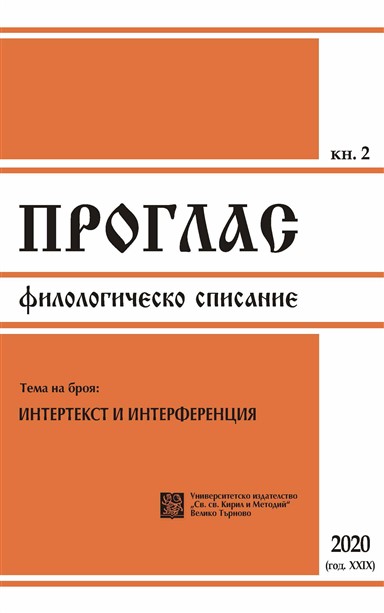Универсальное и национально-специфическое в русских, болгарских и румынских пословицах с компонентами добро–зло, лучше–хуже, хорошо–плохо и их синонимами
On the universal and the nationally-specific traits in Russian, Bulgarian and Romanian proverbs containing the components ‘good–evil’, ‘better–worse’, ‘good–bad’ and their synonyms
Author(s): Elena RatseevaSubject(s): Language studies, Language and Literature Studies, Theoretical Linguistics, Applied Linguistics, Historical Linguistics, Comparative Linguistics, Sociolinguistics, Eastern Slavic Languages
Published by: Великотърновски университет „Св. св. Кирил и Методий”
Keywords: ‘good-evil’ concept; Russian; Bulgarian; Romanian proverbs; universal and nationally specific traits
Summary/Abstract: The author uses the study of the axiological systems of the Russian, Bulgarian and Romanian paremiological pictures of the world based on proverbs with ‘good–evil’ components and their synonyms as a framework for researching proverbs and sayings of Bessarabian immigrants who have lived in a foreign Russian-Romanian ethnical context for over 200 years. This article describes and presents in a comparative way some Russian, Bulgarian and Romanian proverbs with the components ‘good–evil’ and their synonyms, obtained as a result of continuous sampling of the most complete representative sources. The author brings forward statistical characteristics of arrays paired with observations upon the universal and nationally specific traits at the conceptual, structural and discursive levels. Some entry-level comparative interpretation is carried out, building upon the Russian, Bulgarian and Romanian paremiological ideas about the essence of such categories as ‘good’ and ‘evil’, as well as the balance between these categories and the expected reactions to good and evil.
Journal: Проглас
- Issue Year: 29/2020
- Issue No: 2
- Page Range: 165-179
- Page Count: 15
- Language: Russian

